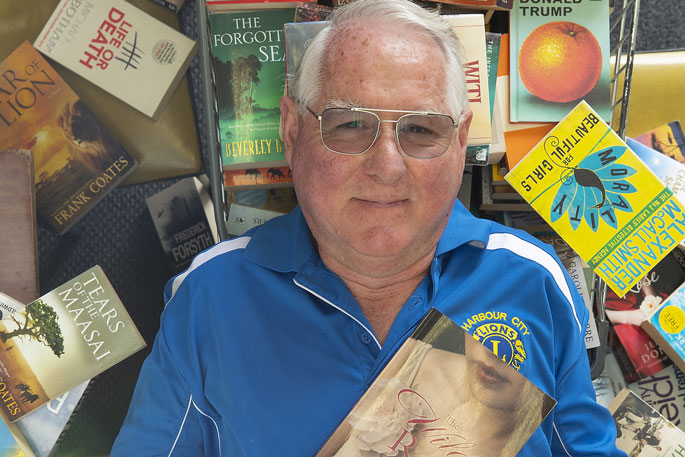Daily News Dose: Black magic books, weapons and cooker among evidence found in Elanthoor house in human sacrifice case

Hello, this is your daily dose of Onmanorama news. I’m your host, Vishnu, and here are today’s top stories:
1. Books on black magic, weapons and stove among evidence found in house of defendant in Elanthoor human sacrifice case
2. Congress goes to the polls tomorrow; result to be announced on October 19
3. 250 schools in Kerala vulnerable to drug spread, according to Intelligence Wing; The Excise Department reinforces vigilance
4. Nayanthara surrogacy dispute: Actress claims her marriage was registered 6 years ago and the surrogate is a relative
5. Kerala seeks direct sourcing of rice from Andhra Pradhesh in a bid to control soaring prices
Let’s get into the details….
———————————————-
1. The police team investigating the Elanthoor human sacrifice case in Kerala discovered that Mohammed Shafi, the main defendant, had three fake Facebook profiles, two of which were able to access. Investigators are trying to trace details of the phone used by Shafi.
Police searched the house in Elanthoor, where the crime took place, as part of gathering evidence. This is the house where Bhagval Singh, a massage therapist, and his wife Laila performed the human sacrifice with Shafi, whom police identified as the mastermind behind the crime. Two women, Rosly and Padmam, were brutally tortured and killed by the accused in separate incidents. The brutal episode came to light during the investigation into a missing complaint filed by Padmam’s relatives. Shafi contacted Bhagval Singh through Facebook using a fake profile.
The police found two Malayalam books on black magic in the house. A pressure cooker allegedly used by the defendant to cook human flesh was also recovered. The collected evidence was sent for forensic examination. According to the police, only Shafi and Bhagval Singh consumed human flesh.
On Saturday, the police recovered the weapons used by the accused to commit the crime. Four machetes, two wooden logs and a razor were among the evidence recovered. The weapons contained the fingerprints of the accused, according to police sources.
Police spotted bloodstains on the floor of the house and in the refrigerator. Investigators also collected samples of ash found near the massage center on the compound. Bhagval Singh had earlier testified to the police that they burned the remains of the victims there.
————————————————
2. The long-awaited Congressional presidential election will take place on Monday, October 17. All eyes will be on whether Thiruvananthapuram MP Shashi Tharoor could engineer an upset victory against party leader Mallikarjun Kharge.
Voting will be open from 10 a.m. to 4 p.m. and the result will be announced on Wednesday.
Meanwhile, the electoral campaign ended on Sunday evening. Tharoor ended his campaign in Lucknow and returned to Thiruvananthapuram, where he will practice his franchise at the headquarters of the Kerala Pradesh Congress Committee.
Kharge, however, joined Congress leader Rahul Gandhi in his Bharat Jodo Yatra at Ballari in Karnataka. The Kharge camp strongly believes that Tharoor will not get more than 300 votes.
Meanwhile, Madhusudan Mistry, chairman of the party’s Central Election Authority, dismissed Tharoor’s claims about “gaps” in the voters list and claimed that a new list, after correcting all the gaps, had been given to the chief of Kerala.
Voting booths have been set up at the headquarters of Pradesh Congress Committees in all states and union territories and at the AICC in Delhi.
Voters must present their identity card issued by the Central Electoral Authority. Those who have not yet collected their identity cards can obtain them from 9 a.m. Monday by producing either their Aadhaar card or their voter registration card.
The names of the candidates will be listed in alphabetical order. The voters’ finger will be marked in ink.
There are two sections in the ballot. Voters should mention the Pradesh Congress Committee they represent, their name, serial number and location in the second part below. They must tear this part and give it to the returning officer.
Voters must mark the number “1” in front of the name of the candidate for whom they wish to vote.
The vote will be invalid if they mark an ‘x’ or a tick.
Once the voting process is complete, the ballot box will be sealed in the presence of the candidates’ agents. Officers and returning officers will sign the sticker affixed to the seal. Returning officers will then bring it to AICC headquarters.
The ballot box will be opened at 10 a.m. on October 19 in the presence of the officers. The votes of all states will be shuffled before counting them. The result will be announced in the evening.
————————————————
3. The intelligence wing of the excise department has compiled a list of 250 educational institutions in Kerala that are vulnerable to the spread of drugs. The excise commissioner has ordered blitz inspections at these schools once a week.
The list was prepared based on cases of drug abuse among school children and their interactions with drug gangs. The report notes the presence of drug traffickers on the premises of these schools and on the routes taken by the children to return home.
The report specifically mentions that drug traffickers try to lure students away from school campuses as they are aware of the strict surveillance on the premises of these educational institutions.
The Excise Bike Patrol Team will continuously monitor and keep these areas under control. They will patrol the roads half an hour before the start of classes and also just before the end of classes.
Excise teams have been tasked with keeping tabs on bus stops, internet cafes and juice stands where students are likely to congregate in groups.
————————————————-
4. Actor Nayanthara, who is facing a surrogacy investigation, has revealed that the surrogate is his relative.
In an affidavit given to the Tamil Nadu Department of Health, Nayanthara and her husband Vignesh also clarified that although they married in a ceremony in June this year, their marriage was registered six years ago. .
They also produced the marriage registration certificate along with the affidavit.
The development follows an investigation ordered by Tamil Nadu’s Minister of Health, Ma Subramanian, into whether the couple had breached surrogacy laws.
According to the Assisted Human Reproduction (Regulations) Act and the Surrogacy (Regulations) Act, enacted in 2021, a couple is only considered “eligible” for surrogacy if they have been married for five years. . The wife must be between 25 and 50 years old and the husband between 26 and 55 years old. The couple must not have any living, biological or adopted children.
According to the law, a surrogate mother must be a close relative of the couple, a married woman with a child of her own, between the ages of 25 and 35, who has only been a surrogate mother once in her life.
It was on October 9 that the couple revealed that they had become parents of twins.
The couple say they broke no laws. According to them, the surrogacy agreement was signed last December.
The surrogate mother is indeed a relative of Nayanthara based in the United Arab Emirates who takes care of the latter’s affairs in Dubai. The Chennai hospital where the twins were born has also been identified.
—————————————————————
5. In an attempt to control retail prices, the government of Kerala is seeking to procure rice directly from Andhra Civil Supplies. The state would start a discussion on the matter with the Andhra Pradesh government on Monday, Civil Food and Supplies Minister GR Anil said.
Within a month, the retail price of rice increased by Rs 15 per kg in the state. Prices for Matta and Jaya rice, which are mainly used in the state, have increased by Rs 10 to Rs 15 per kg.
Currently, branded Matta rice is priced at Rs 60-63 per kg. The price of Jaya rice, which was selling at Rs 40 per kg a month ago, reached Rs 55.
Traders say retail prices aren’t expected to change until next January. They attribute the sudden rise in prices to reduced production in the rice-producing states of Andhra and Karnataka and the imposition of a 5% GST on packaged rice.
Mill owners said that although the season has started in Karnataka, they are not getting enough rice. Rice prices are only expected to drop when harvesting begins in Andhra, they said.
There is a major shortage of rice stocks in large mills in Kerala. Internal state production does not affect the free market, as the rice produced here is stored by the government itself and distributed through the state distribution system (ration stores).
——————————————-
That brings us to the end of this episode. Be sure to come back tomorrow. As always, thanks for listening to Daily News Dose.





